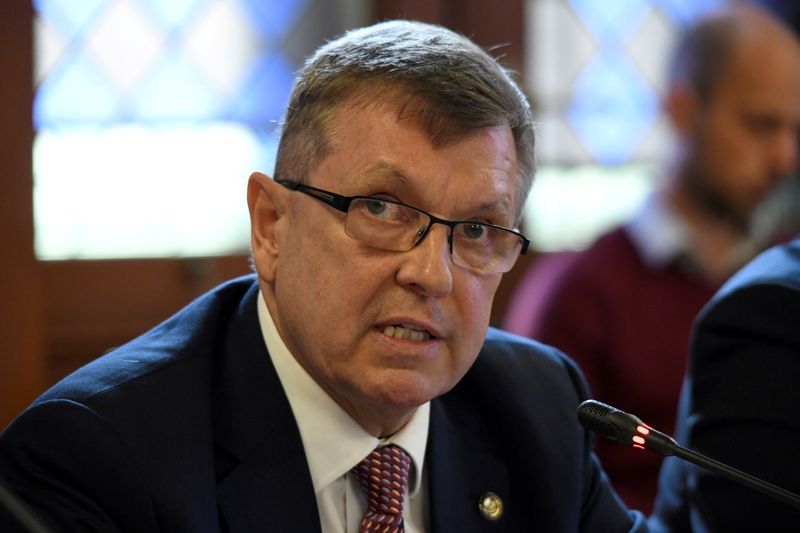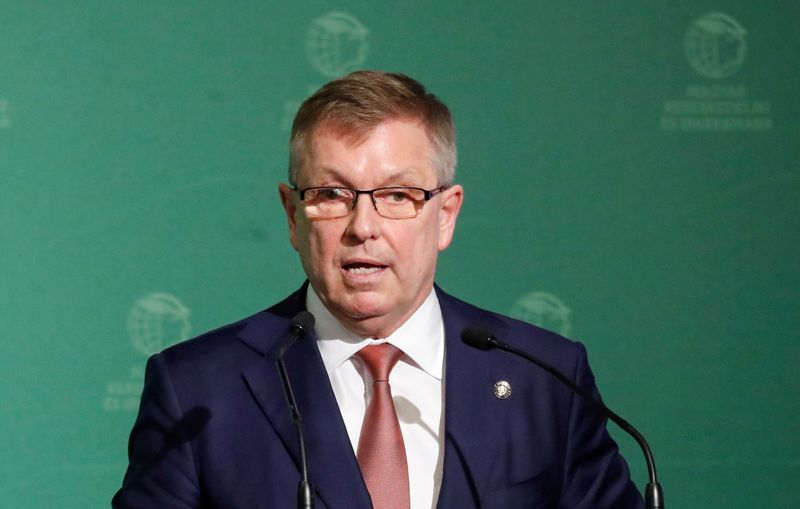BUDAPEST (Reuters) – Hungary’s parliament made a “mistake” in passing the 2022 budget, which will generate inflation and add unnecessary risks to the economy, central bank Governor Gyorgy Matolcsy said in an article for the daily Magyar Nemzet’s website on Monday.
Matolcsy’s strongest criticism of Prime Minister Viktor Orban’s budget for the 2022 election year comes as the central bank heads into a watershed meeting on Tuesday where it could become the first in the European Union to raise interest rates as the coronavirus crisis eases.
The NBH is expected to raise its base rate by 25 basis points to 0.85% in response to rising price pressures, which Matolcsy said would be amplified by additional demand generated by the 2022 budget and higher imported inflation.
“The Hungarian economy does not need to be restarted in 2022 with a high budget deficit,” Matolcsy said. “Instead, it is possible and desired to return to the previous path of balance.”
Matolcsy said Hungary should return to a budget deficit near 3% of gross domestic product as soon as possible, preferably next year, which he said could be achieved by halving the amount of planned government investments next year.
Orban has said such a large adjustment would deal too big a shock to the economy next year and Finance Minister Mihaly Varga has also defended the budget, exposing one of the biggest rifts in Hungary’s top brass in recent memory.
Parliament passed the 2022 budget this month with a raft of measures targeting key voting groups ahead of next year’s ballot, which will be Orban’s first competitive election since three successive landslides since taking power in 2010.
The measures include scrapping the personal income tax for people younger than 25, rebuilding a 13th month of payment to pensioners and grants for families to renovate their homes.
Orban is also proposing a $2 billion personal income tax rebate to families ahead of the vote if economic growth exceeds 5.5% this year. His government is in talks with banks on the future of a loan repayment moratorium due to expire this year.
Matolcsy said the recovery from the coronavirus pandemic was faster than expected, boosting inflation risks, which were compounded by the resulting mismatches between supply and demand.
“The additional demand generated by the 5.9% of GDP budget deficit target fuels inflation further, which can nudge jumps in inflation onto a sustained higher inflation path,” Matolcsy said.
He said the combination of a high budget deficit, sustained high inflation, deeply negative real interest rates and the extension of a loan repayment moratorium in its current form could trigger a “strong financial attack” on Hungary.
“This could be averted with the targeted overhaul of the moratorium (made available only to those who need it) as well as transforming next year’s budget,” Matolcsy said.
(Reporting by Gergely Szakacs; Editing by Kevin Liffey and Bernadette Baum)
























